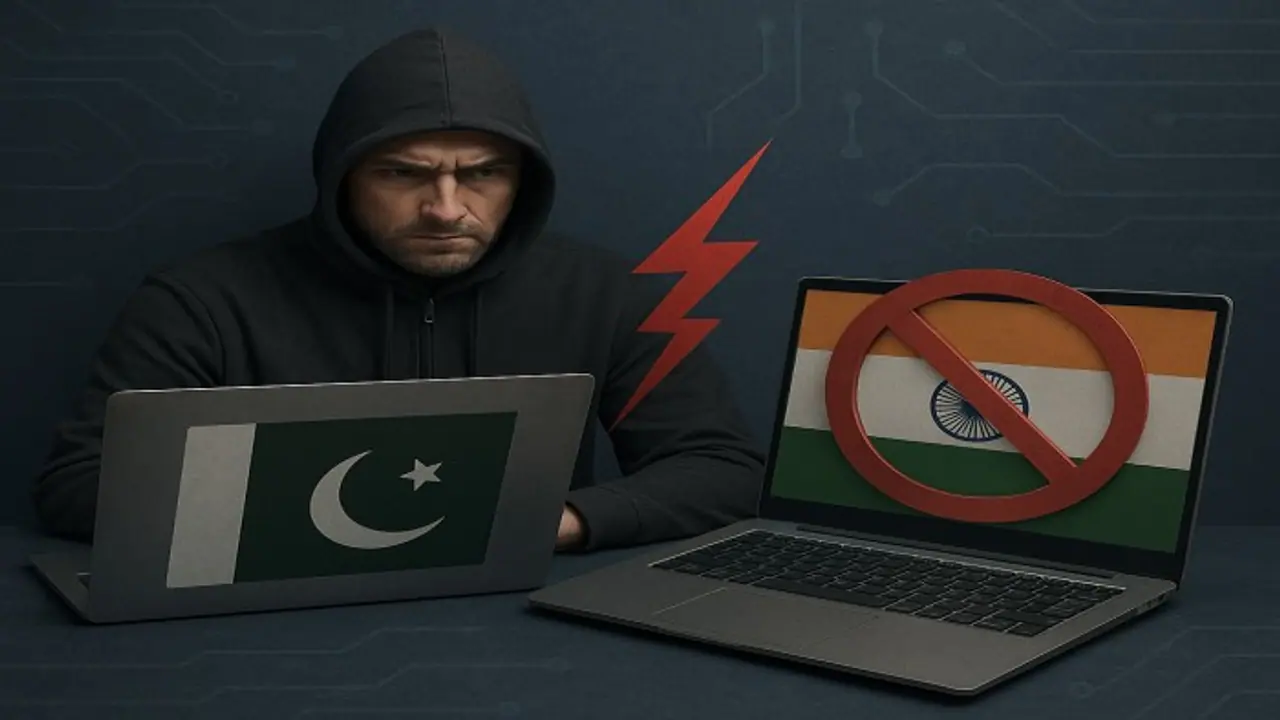Amid growing hostility against Pakistan, Indian intelligence agencies confirmed cyber attacks on four military-linked public websites.
India’s measured but firm retaliation following the brutal April 22 terror attack in Pahalgam—where 26 civilians lost their lives—has moved into a decisive phase, with a multi-domain response that includes cyber defence, economic sanctions, diplomatic isolation, and military readiness. As border tensions mount, India is sending a clear message: provocations will not go unanswered.

Cyber Front Under Fire
Amid growing hostility, Indian intelligence agencies confirmed cyber attacks on four military-linked public websites. These included the Army Public School portals in Srinagar and Ranikhet, which were defaced with inflammatory propaganda. The Srinagar school site also suffered a Distributed Denial of Service (DDoS) attack, temporarily disrupting services.
Meanwhile, attempts were made to breach the Army Welfare Housing Organisation’s database and the Indian Air Force Placement Organisation portal. Swift action by India’s cyber response teams ensured the attacks were contained, systems were isolated, and no sensitive or operational networks were compromised.
The cyber intrusions, traced back to a Pakistan-based group operating under the alias “IOK Hacker” or “Internet of Khilafah,” sought to extract personal information and incite unrest. These attempts, however, only underscored the limitations of Pakistan’s cyber proxies. India’s multi-layered cybersecurity systems detected the attacks in real-time, neutralizing them before any major damage could occur.
Retaliation Through Sanctions
In response to the Pahalgam massacre and the failed cyber offensives, India has suspended all imports from Pakistan effective May 3, 2025. This includes both direct and indirect imports—effectively cutting off all goods, regardless of prior permissions or exceptions. The Directorate General of Foreign Trade (DGFT) cited national security and public policy as grounds for the ban.
In addition to economic restrictions, postal links have been suspended. The Department of Communications declared an immediate halt to all categories of inbound mail and parcels from Pakistan via air and surface routes. Maritime ties have also been severed. Ships flying the Pakistani flag are now banned from docking at Indian ports, and Indian ships will not call at ports in Pakistan, according to the Ministry of Ports, Shipping and Waterways. Exceptions will be considered strictly on a case-by-case basis.
Escalation Along the LoC
Simultaneously, there has been a steady uptick in cross-border firing along the Line of Control (LoC). Over the past five days, small arms skirmishes have been reported, coinciding with Pakistan’s redeployment of troops and heavy weaponry near the border. These military movements, paired with Pakistan’s test launch of the Abdali missile on May 3, a 450-km range nuclear-capable ballistic missile, have been labeled a “grave provocation” by Indian officials. Sources noted that this newer variant of Abdali has an extended range, raising concerns about Islamabad’s intent amid rising tensions.
Diplomatic and People-to-People Freeze
India has also overhauled its visa regime, revoking 14 categories of visas for Pakistani citizens. Only Long Term Visas (LTVs) and diplomatic or official visas remain valid. Other categories—ranging from tourist and medical visas to business, media, religious pilgrimage, and conference visas—have all been cancelled. This visa freeze, formalized between April 26 and April 30, reflects India’s intent to reduce cross-border movement and tighten national security.
Foreign Secretary Vikram Misri had earlier announced the cancellation of visas under the SAARC Visa Exemption Scheme (SVES), with May 1 set as the final exit deadline for Pakistani nationals through the Attari Integrated Check Post.
Strategic Messaging
India’s actions indicate a calibrated, layered response to Pakistan’s continued sponsorship of terrorism and attempts at hybrid warfare. While avoiding direct military escalation, India has effectively countered aggression across cyber, diplomatic, economic, and social fronts. By doing so, it reasserts its position as a resilient, sovereign power that refuses to be coerced.
The message to Pakistan is unequivocal: India will defend its people and its digital and territorial borders—and will respond to provocations with smart, strong, and sustained actions. The ball now lies in Islamabad’s court. Will it de-escalate, or deepen its isolation?
Either way, India stands prepared.
( The author Girish Linganna of this article is an award-winning Science Writer and a Defence, Aerospace & Political Analyst based in Bengaluru. He is also Director of ADD Engineering Components, India, Pvt. Ltd, a subsidiary of ADD Engineering GmbH, Germany. You can reach him at: girishlinganna@gmail.com )


